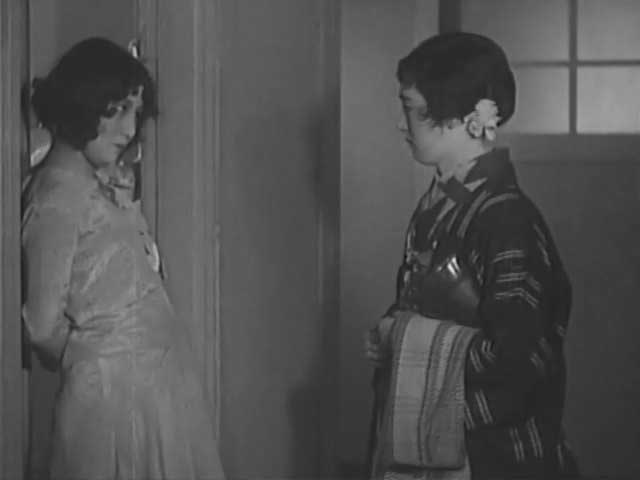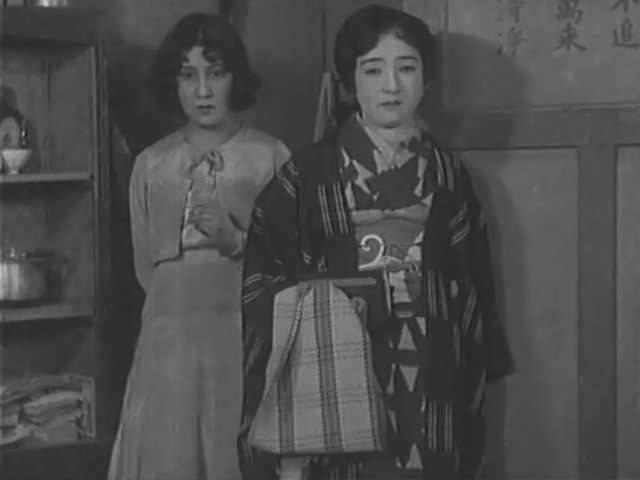The Lady and the Beard
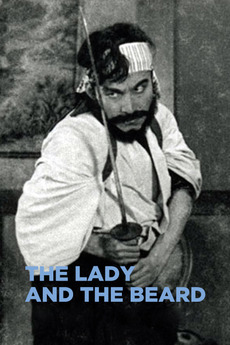
Director: Yasujirô Ozu
Year: 1931
Rating: 6.5
This is my second Ozu film and I am trying
to start off with his early movies as much as I can. Many of the ones he
directed in the 1920's are lost or are missing large sections. By the time
of this film he had already directed 20 films - many of them are comedies
which might surprise those who think of Ozu and his serious family oriented
post-war films that for years were what was available to Western audiences
and considered his classics. He is now held in such high regard that DVD
companies have gone back to release many of his pre-war films with subtitles.
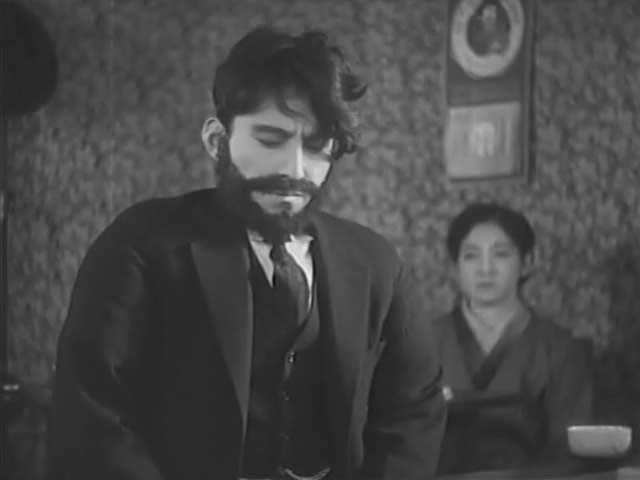
Ozu had to spend much of his teenage years
outside of the Tokyo that he loved and later set so many of his films in.
He was a poor student, not popular with the girls and spent as much time
as he could at the movie theater gobbling up American films. All kinds but
in particular loving the silent comedies. These influences were brought into
his early films. He also preferred modern settings for his films - he had
no interest in period films and only his first film for Sochiku (who he stayed
with for all of his career) was set in the past.
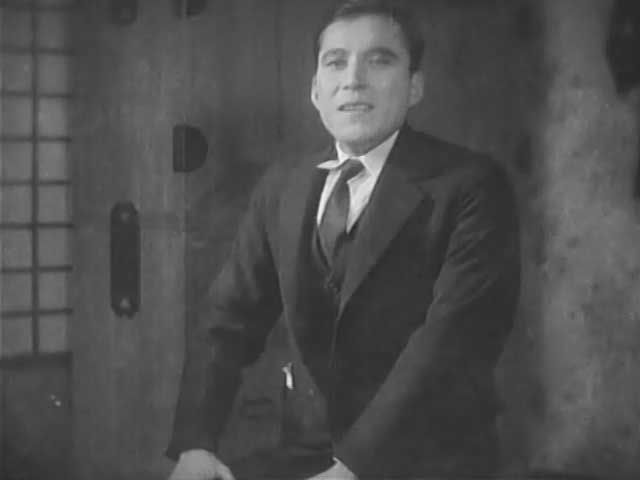
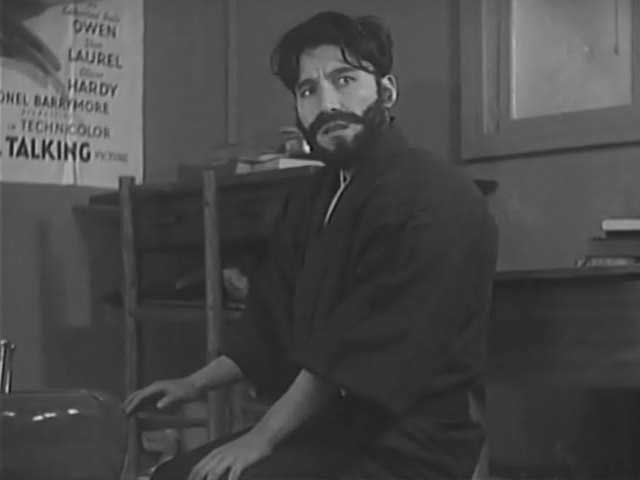
This is a playful film in which Ozu seems
to place himself in the middle of the debate on modernity and tradition and
makes gentle fun of both. It needs to be mentioned that this is a silent
film - though Japan produced its first talkie (Fujiwara Yoshie no furusato)
in 1930, Ozu didn't direct his first (The Only Son) until 1936. Japan in
general transitioned to talkies much slower than in the West. Part of the
reason for this was the popularity of the Benshi - a live narrator of the
film who would act out the various characters, add his own take on the film,
try to gin up excitement - audiences loved them and some of them became famous.
Ozu was in no rush and loved silent films. So the comedy here is generally
visual - a few lovely comic scenes play out in near pantomime.
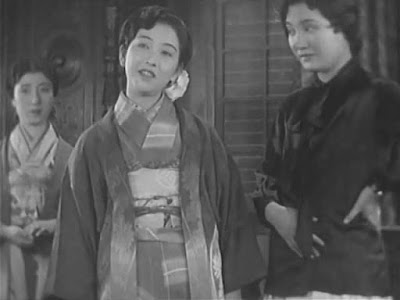
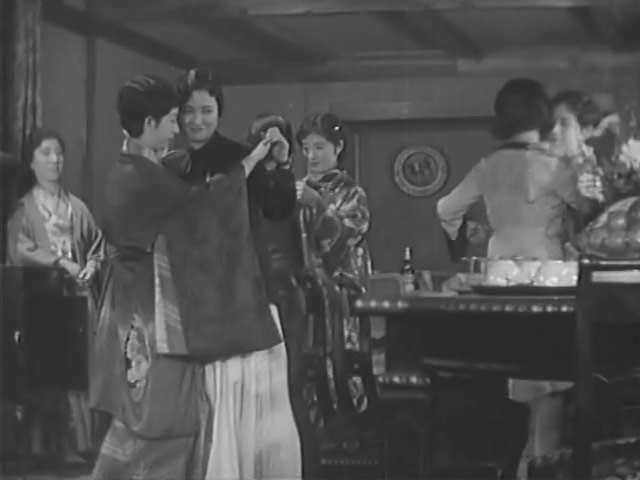
The film begins with
a friendly university Kendo match (with sticks) in which Okajima (Tokihiko
Okada) wins his duels. The duels are not serious matches - more what you
might expect Chaplin to do. When he removes his mask, it turns out he has
a messy beard like tumbleweed taped to his face and hair that looks like
it just came in out of a hurricane. He is a traditionalist - wears clogs
and an obi - he later tells one person who spots a portrait of Lincoln on
his wall that he admires Lincoln because he grew the beard to keep women
away. Not exactly historically accurate. Oddly, a wealthy friend has
a portrait of Marx on his wall. Also of interest is that Okajima has a movie
poster on his wall with Laurel and Hardy in the cast and in large print it
say a Talkie! Apparently, one of Ozu's little inside tributes is to have
a film poster show up in most of his films. In Dragnet Girl (my other Ozu)
he showed two posters - The Champ and All Quiet on the Western Front. Like
spotting Hitchcock.
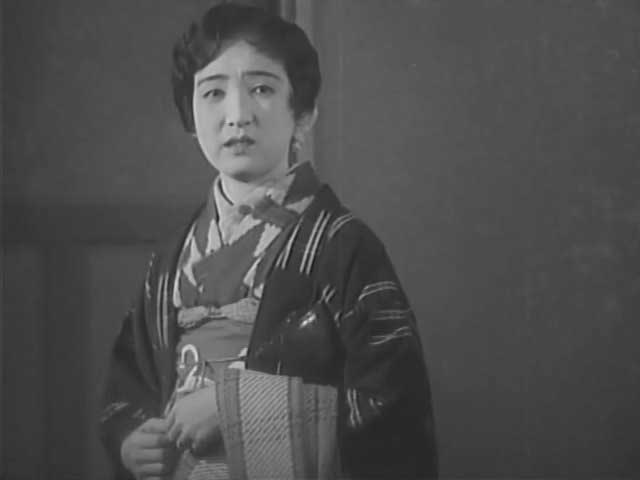
Okijima is invited by a student to come
to his home where his sister (Toshiko Iizuka) is celebrating her birthday
with friends. Modern girls who smoke, play music on the turntable and dance
together. As soon as they get a look at Okijima they start laughing - ask
him to dance - which he can't do - but instead he puts on a kendo demonstration
and they go off running. Japan was itself going through a transition
in a rush to modernity in clothes, the economy, style, the military and beards
were no longer in fashion. On the way to the house he had rescued a girl
from a female gangster (Satoko Date) who has two male cohorts - when they
attack Okijima his kendo training comes in handy. He later runs into this
same girl (Hiroko Kawasaki - a long career in film) and she advises him to
shave the beard if he wants to find a job. He does and not only finds a job
but soon has three women falling for him - Hiroko, the traditional girl,
the sister of his friend, the modern girl, and the gangster girl. Two of
them are in the midst of going through the arranged marriage process that
Ozu makes fun of. It was a popular film at the time and it is easy to see
why.
